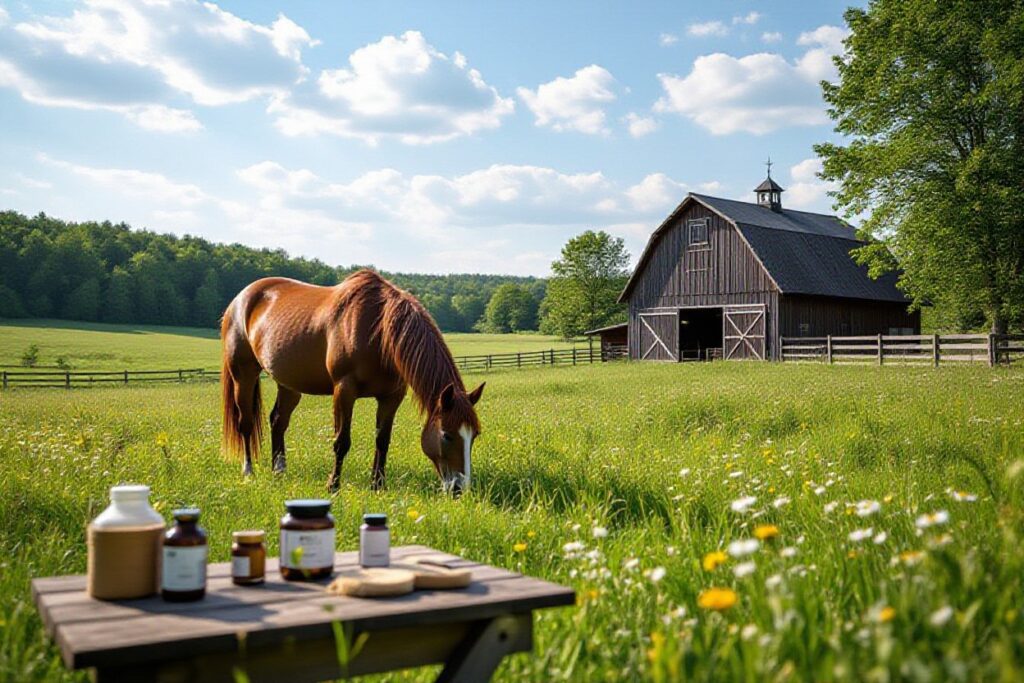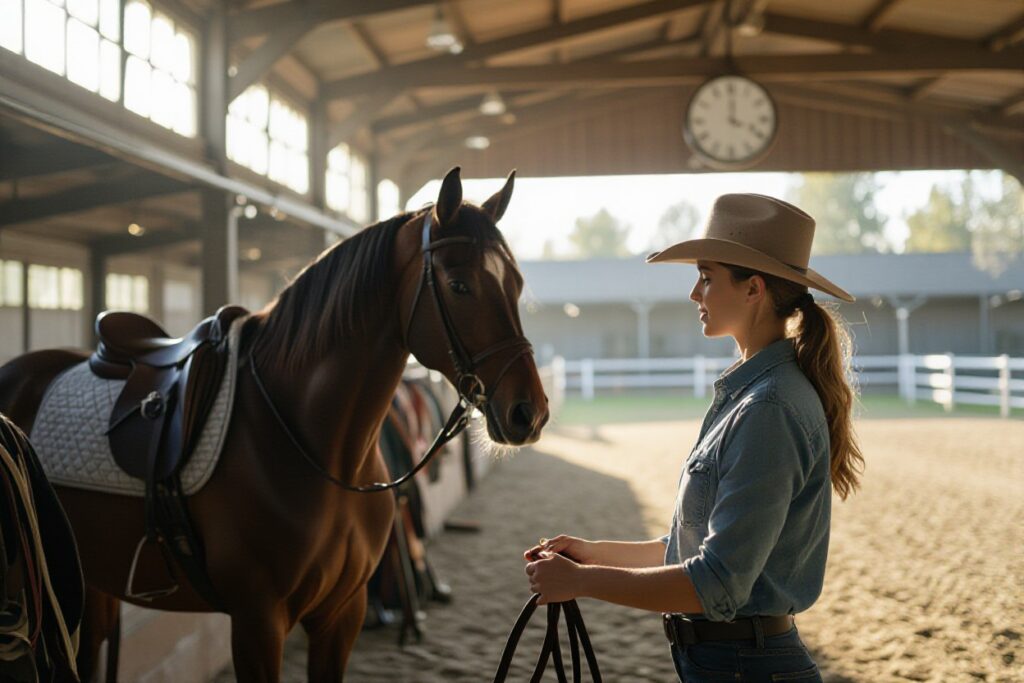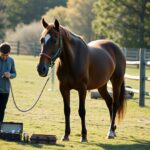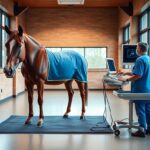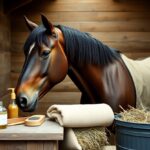Many responsible horse owners understand the importance of having the right equipment to ensure the safety and well-being of their equine companions. In this guide, we will explore the imperative tools and items that you should have in your barn or tack room to properly care for your horse and be prepared for any situation that may arise.


Stable and Pasture Essentials
Fencing and Enclosures
One imperative piece of equipment for your horse is proper fencing and enclosures. Secure fencing is crucial to keeping your horse safe within its designated areas. You should invest in sturdy fencing that is tall enough to prevent your horse from jumping over and strong enough to withstand any pushing or rubbing against it. Additionally, adequate enclosures such as pastures or paddocks give your horse room to move around freely while still being contained.
Shelter and Housing
Essentials for your horse’s well-being include proper shelter and housing options. Providing shelter from the elements is important to ensure your horse can seek refuge from harsh weather conditions such as extreme heat, cold, rain, or snow. A stable or run-in shelter gives your horse a safe space to rest and stay protected. Make sure the shelter is well-ventilated and maintained to keep your horse comfortable.
This ensures that your horse has a safe and comfortable environment to thrive in.
Grooming and Hygiene Tools
If you want to keep your horse healthy and looking its best, having the right grooming and hygiene tools is crucial. Proper grooming not only helps to maintain your horse’s appearance but also promotes circulation, reduces skin irritations, and allows you to check for any injuries or abnormalities. Here are some crucial grooming tools you should have in your kit.
Brushes and Combs
One of the most basic grooming tools you will need is a set of brushes and combs. **Regular grooming** helps to remove dirt, debris, and loose hair from your horse’s coat, promoting a shiny and healthy appearance. A **stiff-bristled brush** is great for removing caked-on mud and dirt, while a **soft-bristled brush** is gentle enough for sensitive areas like the face and legs.
Hoof Care Equipment
Brushes are crucial for **hoof care** to maintain the health of your horse’s feet. A **hoof pick** is a vital tool for cleaning out dirt, rocks, and other debris from the hoof, preventing infections and discomfort. **Regular trimming** and checking for any signs of **thrush** or **cracks** are crucial to your horse’s overall well-being.
With proper hoof care, you can prevent **infections**, **lameness**, and **serious injuries** that can result from neglecting your horse’s feet. It is important to **establish a routine** for **cleaning** and **inspecting** your horse’s hooves to catch any issues early on.
Grooming Aids
With grooming aids such as **shedding blades**, **sponges**, and **mane combs**, you can tackle additional grooming tasks effectively. **Shedding blades** help to remove excess hair during seasonal shedding, while **sponges** are useful for bathing and applying products like **conditioner** or **fly repellent**. **Mane combs** can help you detangle and maintain your horse’s mane and tail, keeping them healthy and free of knots.
Hoof **picks**, **hoof moisturizers**, and **hoof polish** are valuable tools that can help you maintain the overall health and appearance of your horse’s hooves. **Regular use** of these grooming aids can prevent **hoof issues** and **improve the** **appearance** of your horse’s feet.

Riding and Training Equipment
Once again, when it comes to riding and training your horse, having the right equipment is crucial for your safety and the well-being of your horse. In this section, we will discuss the necessary riding and training equipment every horse owner should have.
Saddles and Bridles
Bridles: A bridle is an necessary piece of equipment used to control your horse while riding. It consists of a headstall, bit, and reins. When choosing a bridle, make sure it fits your horse properly to ensure comfort and effective communication between you and your horse.
Riding Apparel
Riding: Proper riding apparel is important for both comfort and safety. A well-fitted helmet is a must-have to protect your head in case of a fall. Additionally, invest in a pair of sturdy riding boots with a heel to prevent your foot from slipping through the stirrup.
Apparel: It’s important to wear appropriate clothing when riding. Choose comfortable, form-fitting clothes that allow you to move freely. Long pants and a fitted shirt are recommended to prevent any loose clothing from getting caught on equipment.
Training Aids
One: Training aids such as lunging equipment or training reins can help you communicate more effectively with your horse and work on specific training goals. Before using any training aid, make sure you understand how it works and seek guidance from a professional if needed.
Plus: **When using training aids, always prioritize the safety and well-being of your horse. **training aids should never be used as a quick fix and should always be part of a comprehensive training program designed with the help of a qualified trainer. **Remember that consistent, patient training methods are key to building a trusting and successful relationship with your horse.**
Health and Wellness Essentials
Now, let’s talk about the vital health and wellness equipment every horse owner should have to ensure the well-being of your equine companion.
First Aid Kit
To be prepared for any minor injuries or health issues that may arise, you should have a well-stocked first aid kit in your barn or tack room. Your kit should include items such as wound dressings, antiseptic solutions, bandages, scissors, thermometer, and medications for common ailments like colic or fever. It’s important to regularly check and replenish your first aid kit to ensure everything is up to date and ready to use in case of an emergency.
Vaccination and Medication Supplies
Health maintenance is crucial for your horse’s well-being. Ensure you have a schedule for necessary vaccinations and deworming treatments. Keep a supply of vital medications prescribed by your veterinarian on hand, such as dewormers, anti-inflammatory drugs, and any specialized medications for ongoing conditions like allergies or arthritis. Regular check-ups and consultations with your vet will help you stay on top of your horse’s health needs.
Health and wellness are key aspects of responsible horse ownership. Regular vaccinations and proper medication are vital in preventing diseases and maintaining your horse’s overall health.
Medication
Hoof and Dental Care Tools
Care
Proper hoof and dental care are crucial to keeping your horse healthy and comfortable. Regular hoof trimming and maintenance tools such as a hoof pick, rasp, and hoof oil are vital for preventing issues like cracks, abscesses, and discomfort. Additionally, scheduling routine dental exams and having proper dental tools on hand for your veterinarian to use will ensure your horse’s teeth are in good condition, allowing for proper chewing and digestion of food.
Hoof
Feeding and Nutrition Essentials
Despite the joys of owning a horse, it’s vital to ensure you have the proper equipment to meet your horse’s feeding and nutritional needs. This chapter will guide you through the must-have vitals for feeding your equine companion.
Hay and Grain Storage
With hay and grain storage, it’s crucial to keep your horse’s food fresh and free from contaminants. Invest in airtight containers or bins to store hay and grains to prevent spoilage or infestation by pests. Additionally, consider storing hay bales off the ground and away from moisture to maintain quality and prevent mold growth, which can be harmful to your horse.
Watering Systems
To ensure your horse stays hydrated, investing in reliable watering systems is paramount. Automatic waterers are a convenient option that ensures your horse always has access to fresh water. These systems can help you monitor your horse’s water intake and prevent dehydration, especially during hot summer months or in freezing temperatures when water sources can freeze.
Storage containers for water should be durable and cleaned regularly to prevent the buildup of algae or bacteria, which can jeopardize your horse’s health. Provide your horse with clean, fresh water daily to promote overall well-being and prevent issues related to dehydration.
Feeding Equipment
Watering and feeding go hand in hand when caring for your horse. Essential feeding equipment includes feed buckets, scoops, and feeders to ensure your horse receives the right portions of hay, grains, and supplements. Keeping these tools clean and in good condition is crucial to prevent contamination and maintain your horse’s health.
Systems like slow feeders or hay nets can also aid in slowing down your horse’s eating pace, mimicking natural grazing behavior and preventing issues like colic or digestive upset. These tools are beneficial for horses that tend to eat too quickly or need portion control to maintain a healthy weight.

Safety and Emergency Preparedness
Keep safety a top priority by being prepared for any emergency that may arise when caring for your horse. Having the right equipment on hand can make a significant difference in keeping both you and your horse safe in challenging situations.
Emergency Contact Information
On your barn bulletin board or in your phone contacts, **make sure to prominently display emergency contact information for your veterinarian, the nearest equine hospital, and a trusted friend or family member who can assist in case of an emergency. In stressful situations, having this information readily available can save valuable time and ensure your horse receives the necessary care promptly.
Fire Extinguishers and Safety Equipment
Safety should always be a priority on your horse property. **Equipping your barn with fire extinguishers and safety equipment such as smoke detectors, carbon monoxide detectors, and first aid kits can help prevent accidents or minimize damage in case of an emergency. Regularly check and maintain these items to ensure they are in proper working condition.
**Fire extinguishers should be placed in easily accessible locations throughout your barn and checked annually to confirm they are fully charged and functional. Investing in quality safety equipment not only protects your property but, more importantly, the lives of your horses.
Evacuation Plans
Safety is paramount when it comes to protecting your horse in an emergency. **Establish clear evacuation plans for different scenarios, such as wildfires, floods, or other natural disasters that may pose a threat to your property. Practice these plans with your family and barn staff so that everyone knows their role and responsibilities in case of an emergency.
**Plus, have a designated meeting point away from your property where you can gather all your animals in case of evacuation. Being prepared and organized can make a significant difference in ensuring the safety and well-being of your horses in a crisis situation.
Summing up
Taking this into account, having the important equipment for your horse is crucial for their care and your safety. By investing in items such as a halter, lead rope, grooming supplies, and first aid kit, you are better equipped to handle any situation that may arise with your horse.
Do not forget, being prepared is key when it comes to owning a horse. By ensuring you have the necessary equipment on hand, you can provide the best care for your horse and enjoy your time together without worrying about missing something important. So gather your important gear and enjoy the wonderful journey of horse ownership!
Q: What is the most important equipment for grooming a horse?
A: The most important equipment for grooming a horse includes a curry comb, dandy brush, body brush, mane and tail comb, and hoof pick.
Q: Why is it important for horse owners to have a properly fitting saddle?
A: It is crucial for horse owners to have a properly fitting saddle as an ill-fitting saddle can cause discomfort, pain, and even injury to the horse. A properly fitting saddle ensures the horse’s comfort and allows for better communication between the rider and the horse.
Q: What safety equipment should every horse owner have?
A: Every horse owner should have a properly fitting helmet, riding boots with a heel, and a safety vest. These items are important for protecting the rider from potential injuries in case of falls or accidents.
Q: What are the important supplies for horse first aid kit?
A: Essential supplies for a horse first aid kit include non-stick gauze pads, adhesive bandages, vet wrap, antiseptic ointment, wound cleaner, thermometer, scissors, and disposable gloves. It is important for horse owners to be prepared for minor injuries or emergencies.
Q: Why is it important for horse owners to have proper storage for their equipment?
A: Proper storage for horse equipment helps to prolong the lifespan of the items by keeping them clean, dry, and organized. It also ensures that the equipment is readily accessible when needed, making the grooming and care process more efficient. Storing equipment properly also reduces the risk of accidents or damage caused by improper storage.


